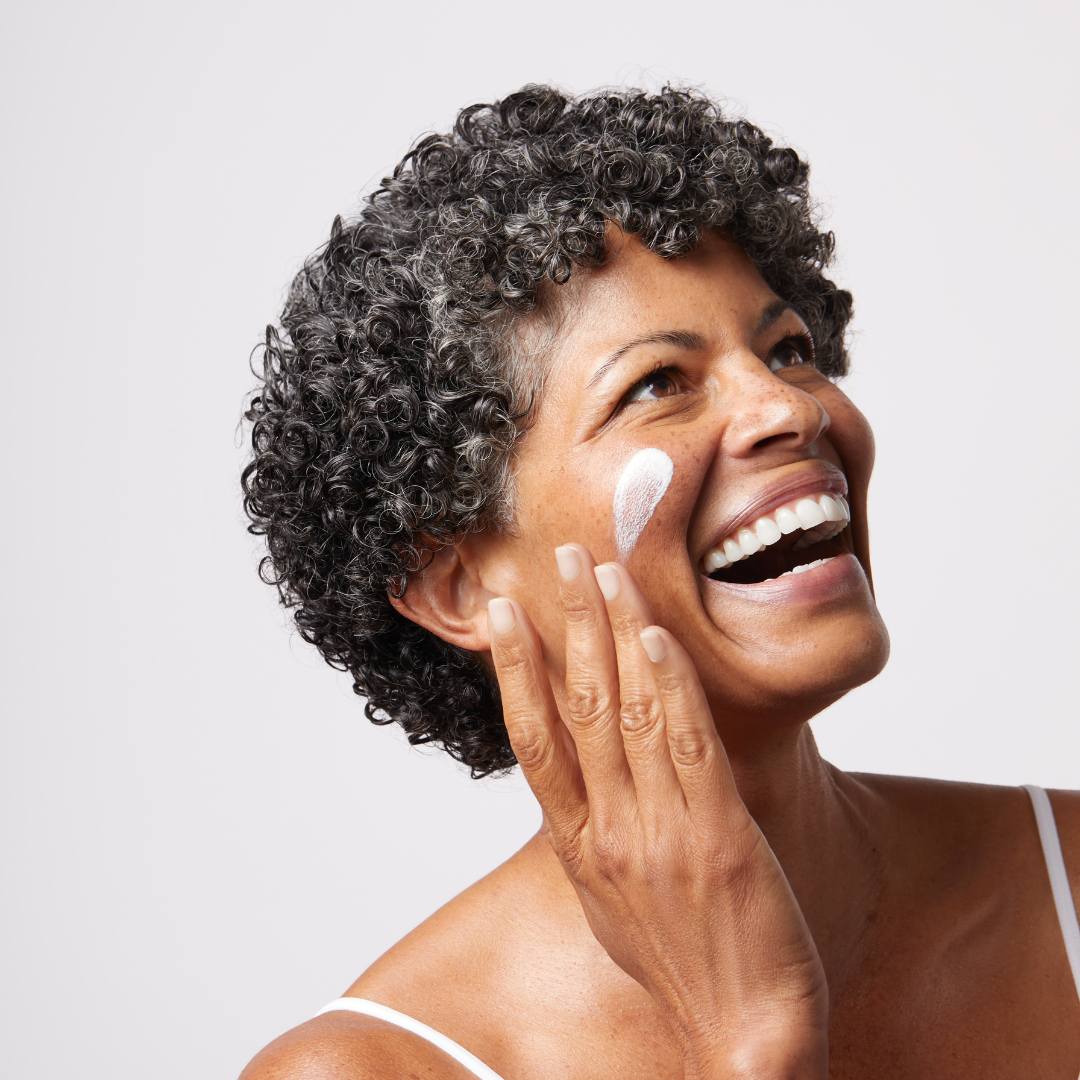Does Your Skin Change During Perimenopause?

Yes, skin changes in perimenopause and can lead to dry skin, loss of collagen and elastin as well as the thinning and hyperpigmentation of skin. Dry skin is one of the first manifestations of skin that is starting to become deficient in estrogen and this is what perimopause is all about. Dry skin is that incredibly annoying party guest that shows up uninvited and never leaves.
Did you know that for some women, perimenopause can be up to 10 years? So, what is perimenopause anyway? Simply put, it’s the time leading up to menopause where hormones can fluctuate. A lot. Some doctors refer to this as ‘reverse puberty’. What makes it even more “interesting” is that we can each have a unique experience. For me, one of the biggest changes was in my skin. Particularly extra dry skin. I had always leaned towards being dry, but this was a whole new level of dry. Oh, one more thing, Menopause is a one-day event- it is a point in time twelve months after your last period. After that, you’re postmenopausal.
Once perimenopause starts, estrogen levels start their decline. This is when most women begin to notice something is awry, but perhaps may not link what’s happening due to hormonal fluctuations with menopause. I didn’t, I blamed each and every odd-ball symptom I was experiencing on my autoimmune thyroid disease because I thought I was too young at 37. The reality was I was on the early track to menopause due to my autoimmune issues and would be fully immersed in the world of perimenopause for another 10 years.
Did you know that there are estrogen receptors throughout the entire body? When it comes to the skin, estrogen aids in retaining moisture levels and keeping skin looking and feeling hydrated. It also increases the production of oil (sebum) to keep the skin moisturized. As the estrogen declines, the skin can get very dry, and it also quickly begins to lose collagen. Lower collagen levels lead to skin that’s just not quite as firm as it once was.
While we are all familiar with what a hot flash is and may even quickly connect that dot to the menopause timeline, the skin issues are not as common knowledge. The skin is the largest non-reproductive organ that is impacted by estrogen. When skin begins to become more deficient in estrogen, hyperpigmentation can increase and appear not only on your face but on your chest, arms, and neck. Also, the skin can start to get thinner and bruise easier. Think crepey and papery. And then there’s the issue of dry, dry, dry skin. For me, because I was already really dry, it became a big problem as I noticed the cream had been using just didn’t seem to do the job. I would apply, feel great for about 15 minutes, and then dry again. This was one of the first tells of perimenopause for me, I felt like I’d aged about 10 years, overnight.
So now I know what happened. So, what’s a girl to do? Focus on hydration and moisturization and even more importantly protection- yes, that means wearing a moisturizing natural sunscreen every single day. Your hormones are in flux, so the level of moisturization you need may change frequently and this is easy to adjust daily with Kari Gran Skincare.
Leave a comment
Comments will be approved before showing up.



